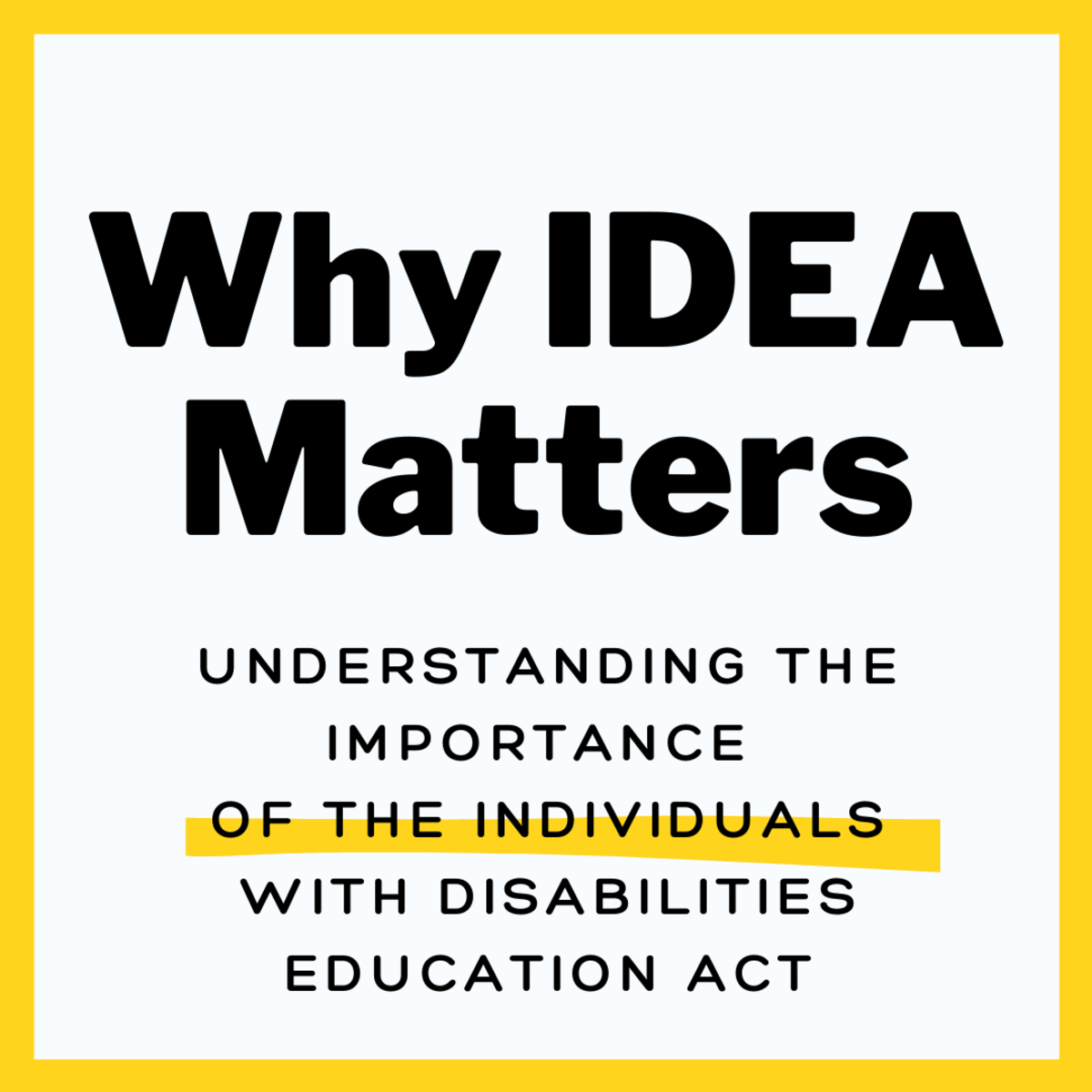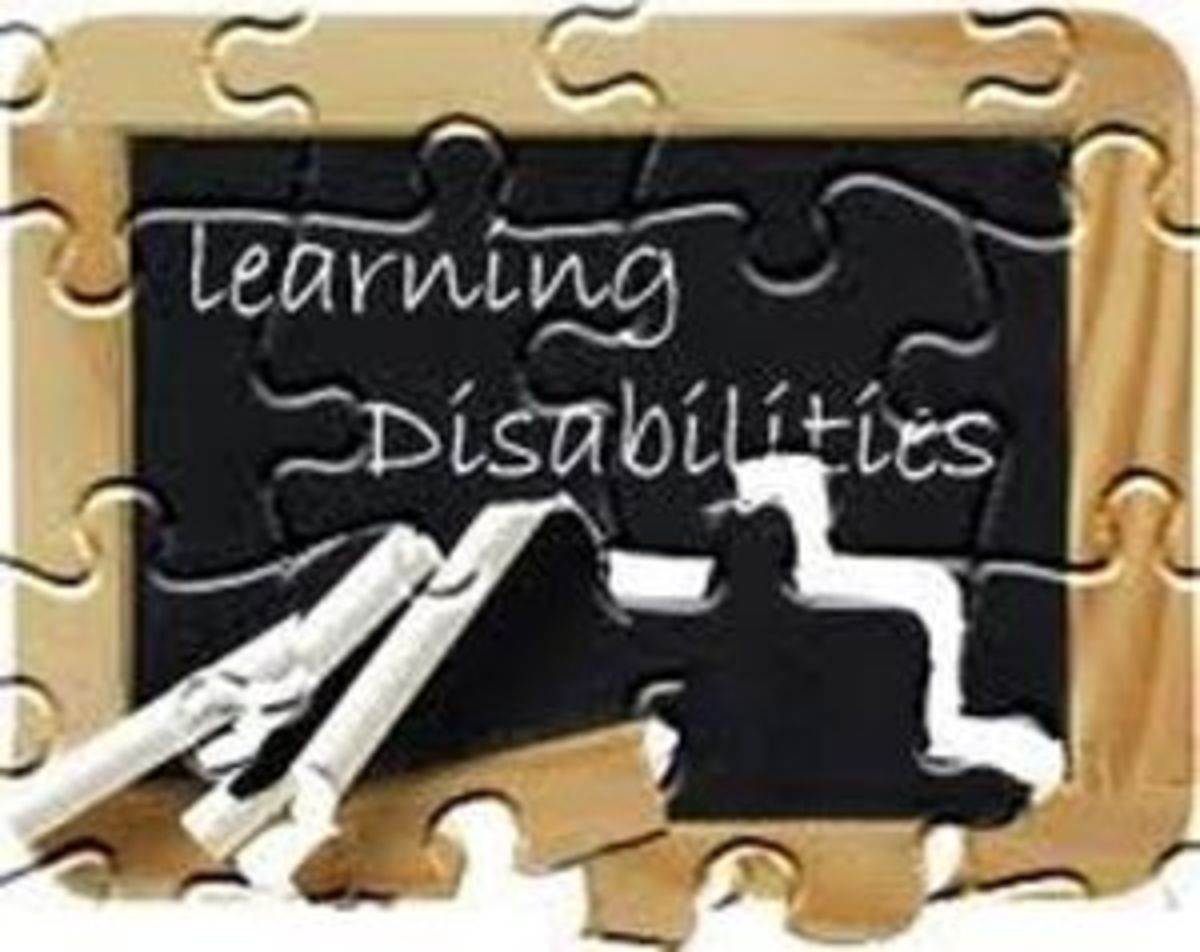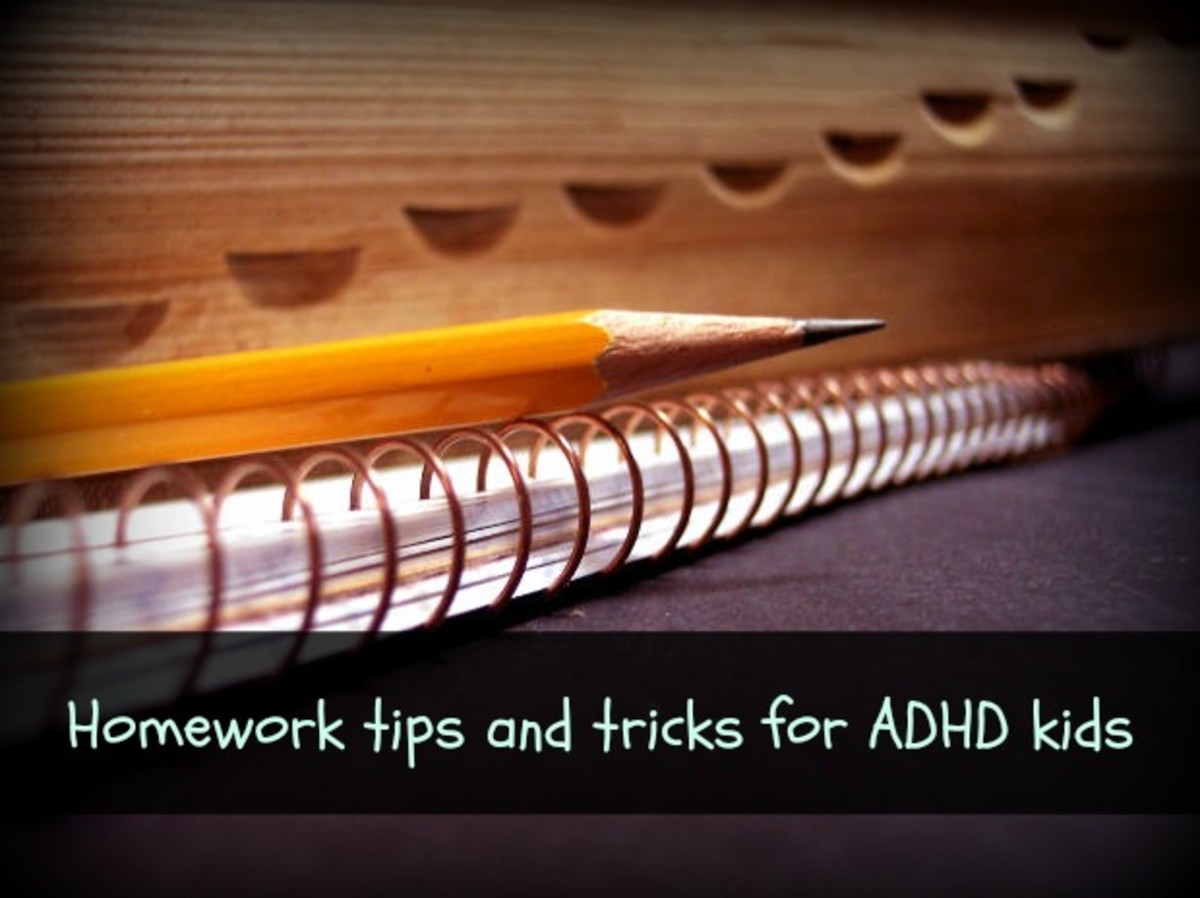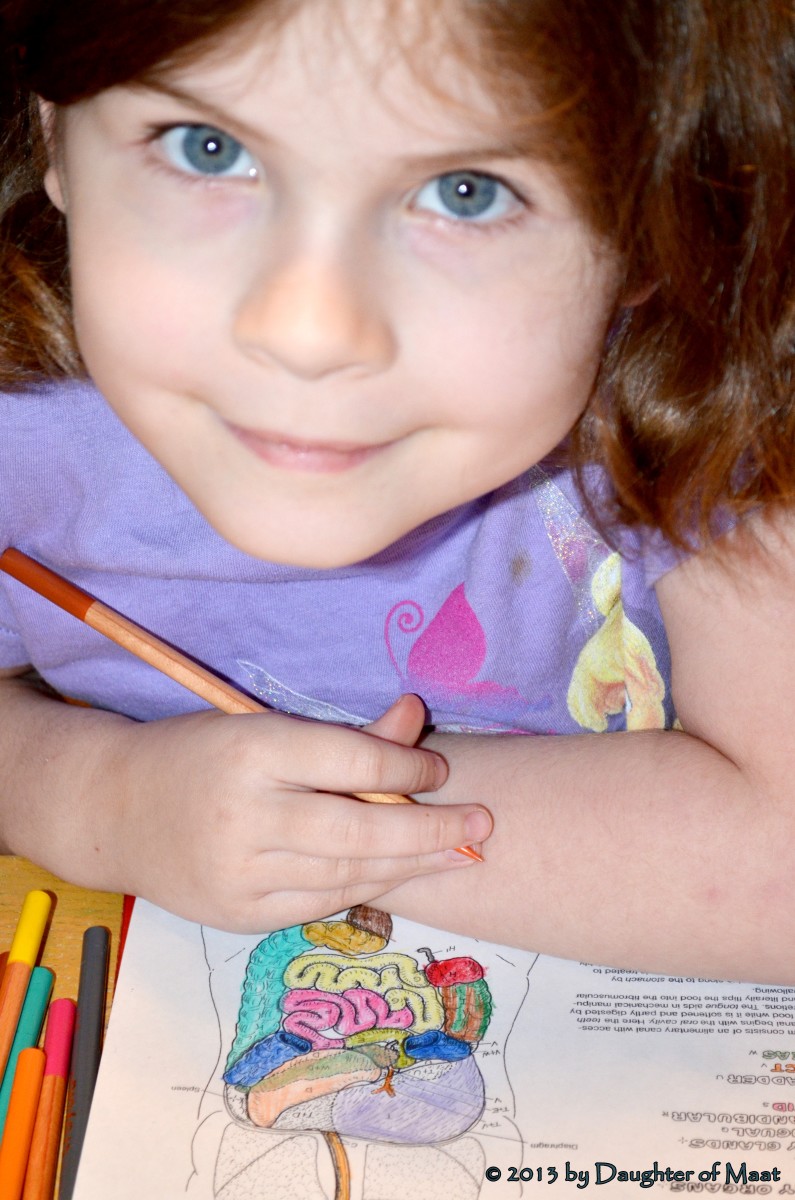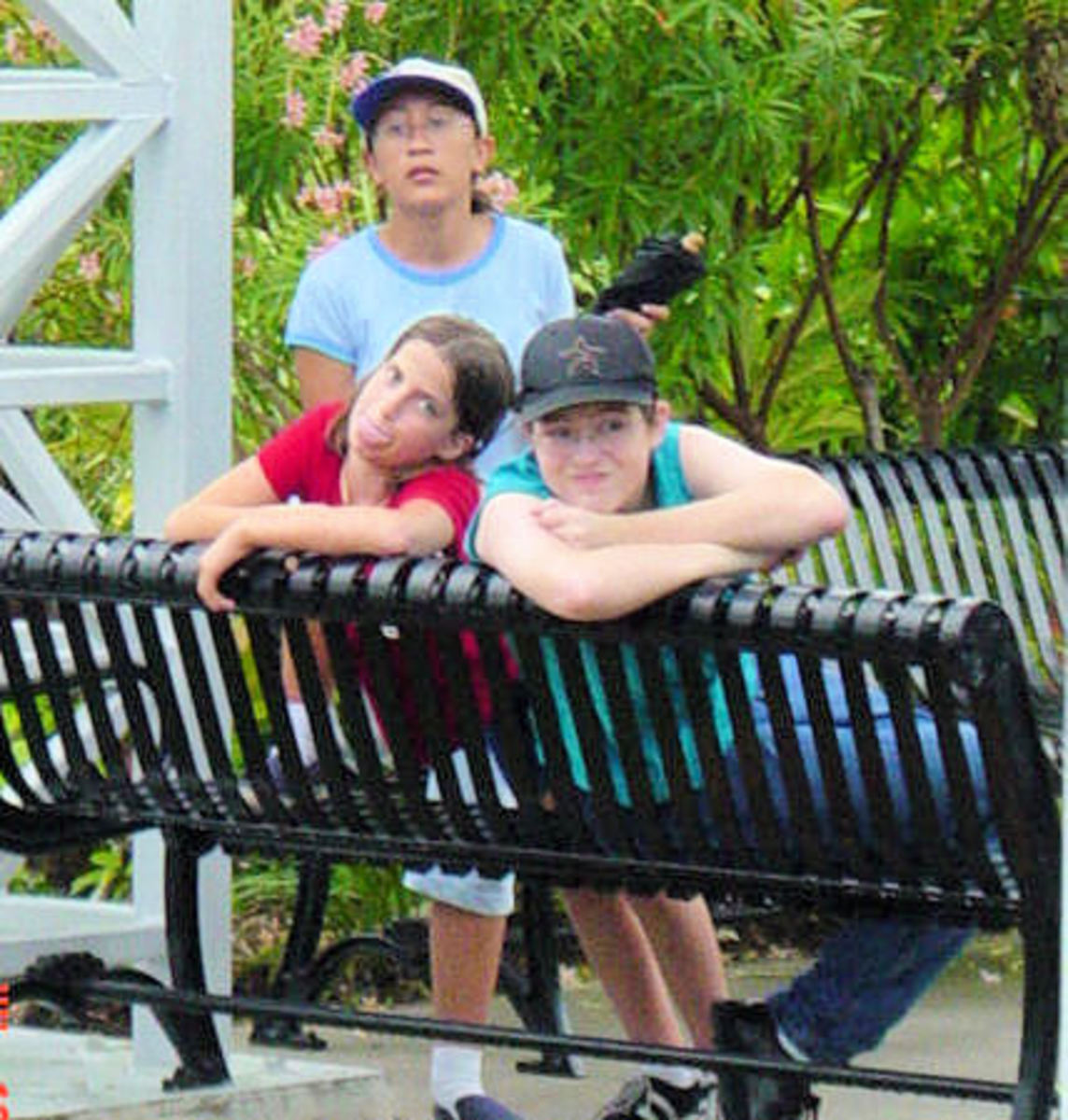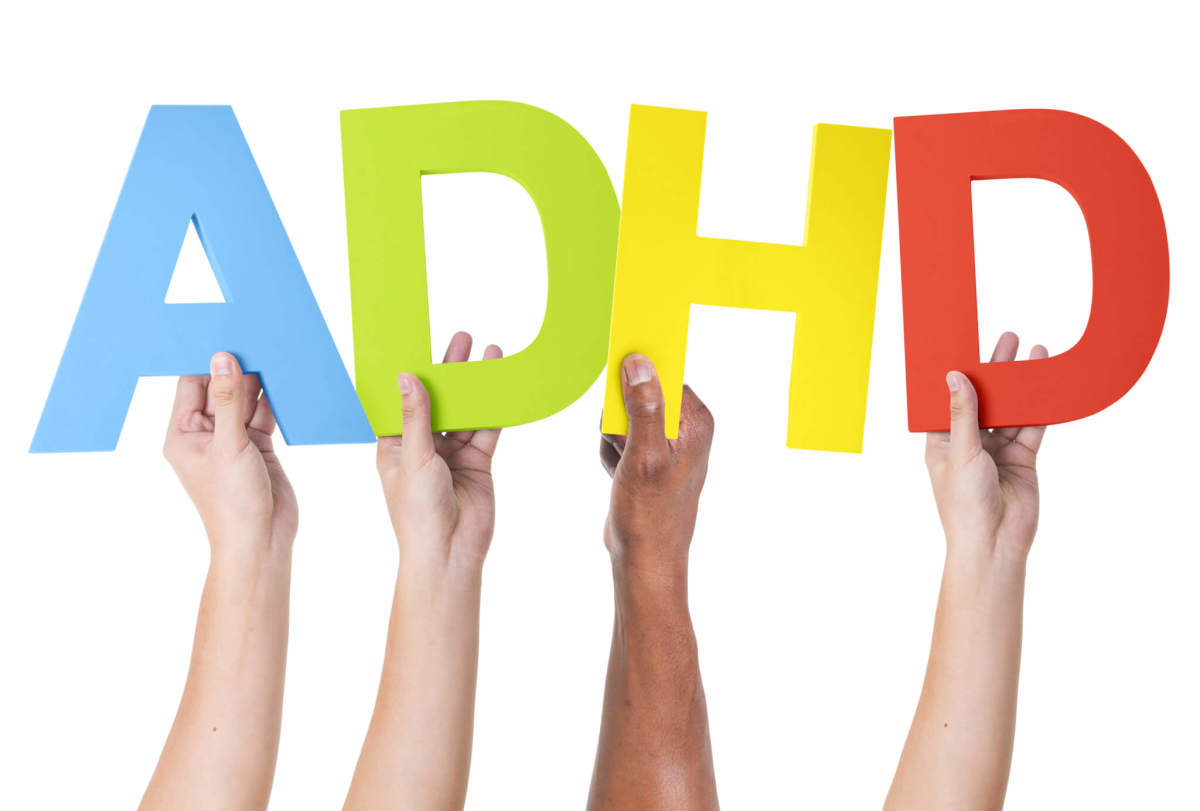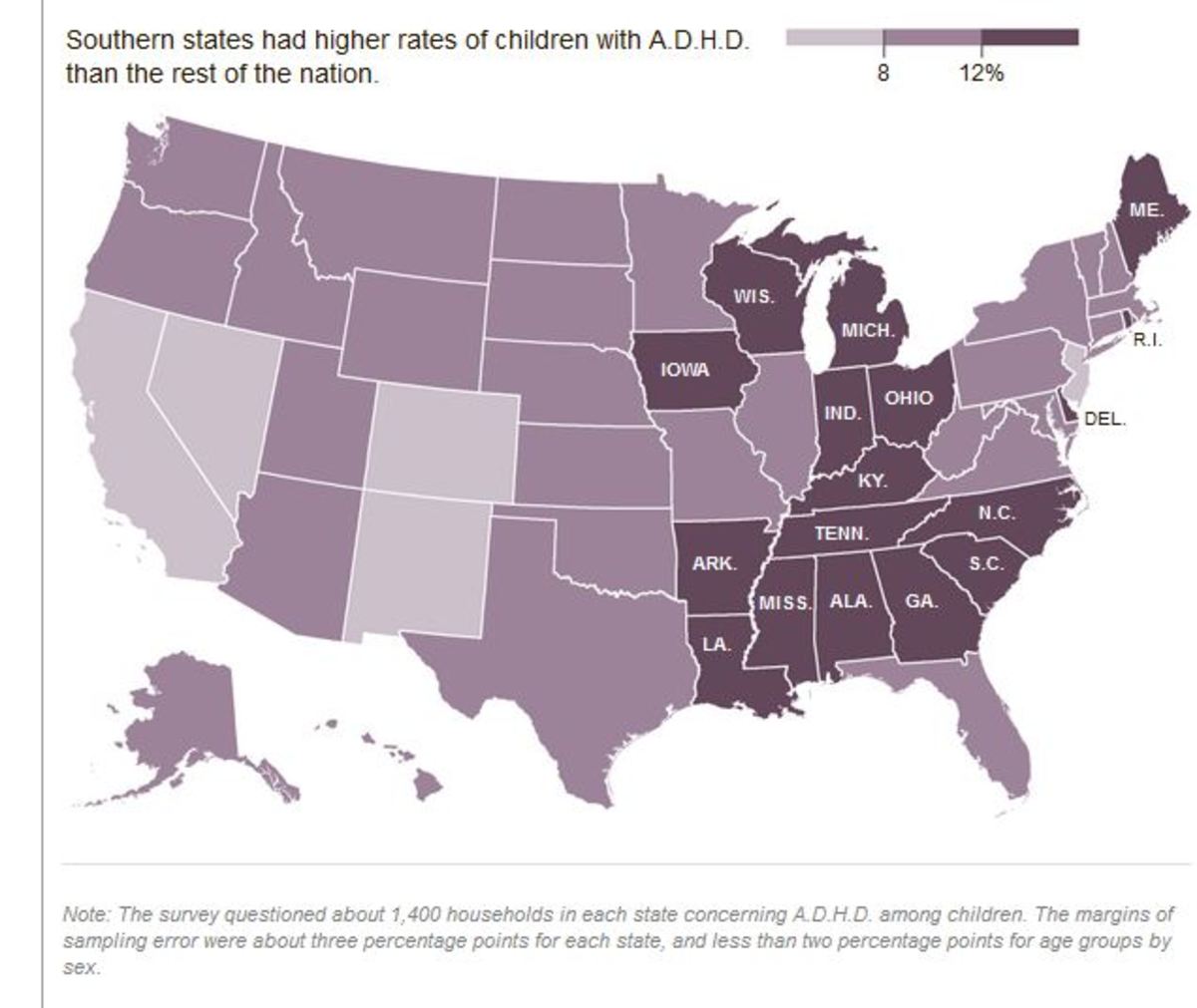My ADHD/ODD/OCD Son Refuses to Respond to Discipline, and Consequences Don't Mean Anything - Please Help Me!
Parenting ADHD Children
If I had been told that I would be the mother of a wonderful, smart, handsome boy, I would have been thrilled and excited with my new role.
If I had been told that this same wonderful, smart, handsome boy would also have ADHD/ODD, Anxiety Disorder and Post Traumatic Stress Disorder, I would have run screaming for the hills!
Fortunately for my son, I did not have prior knowledge of his impending challenges. This may seem like a cold, harsh, unfeeling judgment to many of you. I'm not saying I love my son any less than I would if he didn't have these disabilities, but it would certainly have made our lives easier.
Being the parent of an ADHD/ODD, ADHD/ODD/OCD (or any of the attendant disabilities) child can be difficult. At first glance, these children appear completely normal, meaning they don't have an immediately visible challenge. They generally don't wear leg or arm braces, and they don't use wheelchairs or walk with white canes.
However, these dynamic children come with a completely different set of challenges, that for the uninitiated, can be as hard and in some cases, harder to handle than visible disabilities.
Invisible challenges
For the uninitiated, ADHD stands for Attention-Deficit/Hyperactivity Disorder, ODD, Oppositional Defiant Disorder and OCD, Obsessive Compulsive Disorder.
To begin with, ADHD/ODD/OCD kids don't have the same mind set as their peers. They don't process information the same way, and they aren't interested in many of the same activities as other children their age. In many cases these children are behaviourally, four or five years behind their peers.
ADHD, ODD and OCD are all frontal lobe disabilities. The frontal lobe is responsible for problem solving, memory, language, judgment, impulse control and social behaviour. If you were to look at a brain scan of a person with ADHD, you would see that the frontal lobe has diminished activity compared to a person without the disability. If you were to make a person with ADHD focus on a task, and then view the brain scan, you would notice a marked decrease in activity from the first scan.
This scientifically shows the difficulty, people of all ages and especially children with this disability have in processing and controlling their behaviour.
Visible results of ADHD
Some of the visible manifestations of ADHD are as follows.
- appears to daydream, has trouble maintaining attention (unless the subject is something of interest)
- easily distracted (again, unless the subject is something of interest)
- difficulty following directions and completing tasks
- doesn`t like and avoids tasks requiring sustained mental focus (including schoolwork)
- enjoys loud, excessive play
- has trouble with short term/mid term memory, often forgetting details,doesn't grasp monetary values
- appears to ignore or not hear when spoken to (exceptionally selective hearing)
- constantly on the move, can't sit still, fidgets
- has no concept of time
- compulsive, speaks and/or acts before thinking
- verbose (talks non-stop)
- difficulty waiting turns, interrupts or disrupts conversations and activities
This is not a complete listing, but enough that a parent of a non-ADHD child can see some of what we deal with on a daily basis.
Add an attendant disability or three into the mix and the challenge to parent the child goes from difficult to almost impossible.
Attendant disibilities
ODD, OCD, CD, (Conduct Disorder) Bipolar, Anxiety Disorder, Post Traumatic Stress Disorder, Tourettes Syndrome, Aspergers or Depression, to name a few disorders, can manifest along with ADHD. Some of these might not be predominant enough to warrant a stand alone diagnosis, however, many disabilities share some of the same symptoms. So although your child might show a propensity for violent behaviour, walk on his toes and talk to himself, he probably won't be diagnosed with Aspergers.
It is nearly impossible to understand how these children process the effects of their disabilities, so being the person responsible for maintaining a source of discipline can be equated to going over Niagara Falls in a barrel with one paddle and a skein of wool to keep you from falling.
The buck stops here...
The hardest and most confusing part of your job as a parent of an ADHD child is discipline and consequences.
Once you have been given information about your child's disorder, it becomes your responsibility to learn everything you can. It falls to you to liaise with school officials, teachers, and psychologists. Notice I didn't say family members. Most family, including siblings, can't understand why your child reacts to discipline so differently. In order to build a good family support system, they also need to learn about your child's disability.
This same reaction can lead parents of these children to try multiple methods of discipline and leave them speculating as to the success of any one of them.
Be consistent
One of the most important points to remember when faced with inconsistent results from discipline is to, believe it or not, be consistent! The results of your discipline may seem to fluctuate, but you need to maintain that uncrossable line. Eventually, as with all children, your child will get the message that the undesirable behaviour is unacceptable and comes with consequences, even if at the time, the child doesn't seem to care.
You need to work with the professionals in your child's life, psychologists, teachers, etc., to build a workable system to guide your child. If you are still not seeing any positive results, you need to enlist more help, or make some changes. Don't be afraid to change the professionals if you feel they aren't a good fit for your child. You wouldn't think twice about changing your physician if you weren't happy, and the same thing applies to the professionals helping your child.
Long haul
Unfortunately, for parents of ADHD/ODD children, there is no quick fix. There are no short cuts and no magic solutions to your challenges. There are several avenues available that can diminish certain aspects of this disorder and its attendant disabilities. Each one needs to be researched to see what meets yours and your child's needs. There are medications, each with their own risks and side effects, herbal formulas, supplement regimes, diet control, and behaviour therapy, to name the most popular.
In most cases the medications available don't affect changes to much of the challenging behaviour that manifests, and many parents are unaware there are supplements that can help. In order to change the behaviours, you need to change the brain. To do this requires hours of work with psychologists, behaviour modification specialists and mentors. Raising the levels of serotonin and dopamine in the brain helps to strengthen and balance the brain, enabling it to function better. This in turn can help with your child's behaviour.
There are links listed below to an online community for support and other hubs that offer ADHD information. The only thing you can do to help alleviate the effects of ADHD/ODD/OCD and other disorders, is to keep learning. The more you know, the better armed you are to help your child.
Remember, you aren't alone.
More ADHD information
- Ons Small Step for Parents
An online community with resources, information and support for parents raising children with ADHD and its attendant disorders. - ADHD/ADD And Their Co-disorders
- How To Cope With Your Child's ODD (Oppositional Defiant Disorder)
Oppositional Defiant Disorder, ODD, ADHD/ODD. This is for the parents who live with this disability, day in, and day out. If they are lucky, maybe they catch a break on the weekend, (depending on whether you are a single parent) if not, then unless a - Amen, Daniel G., M.D. -- Change Your Brain, Change Your Life

